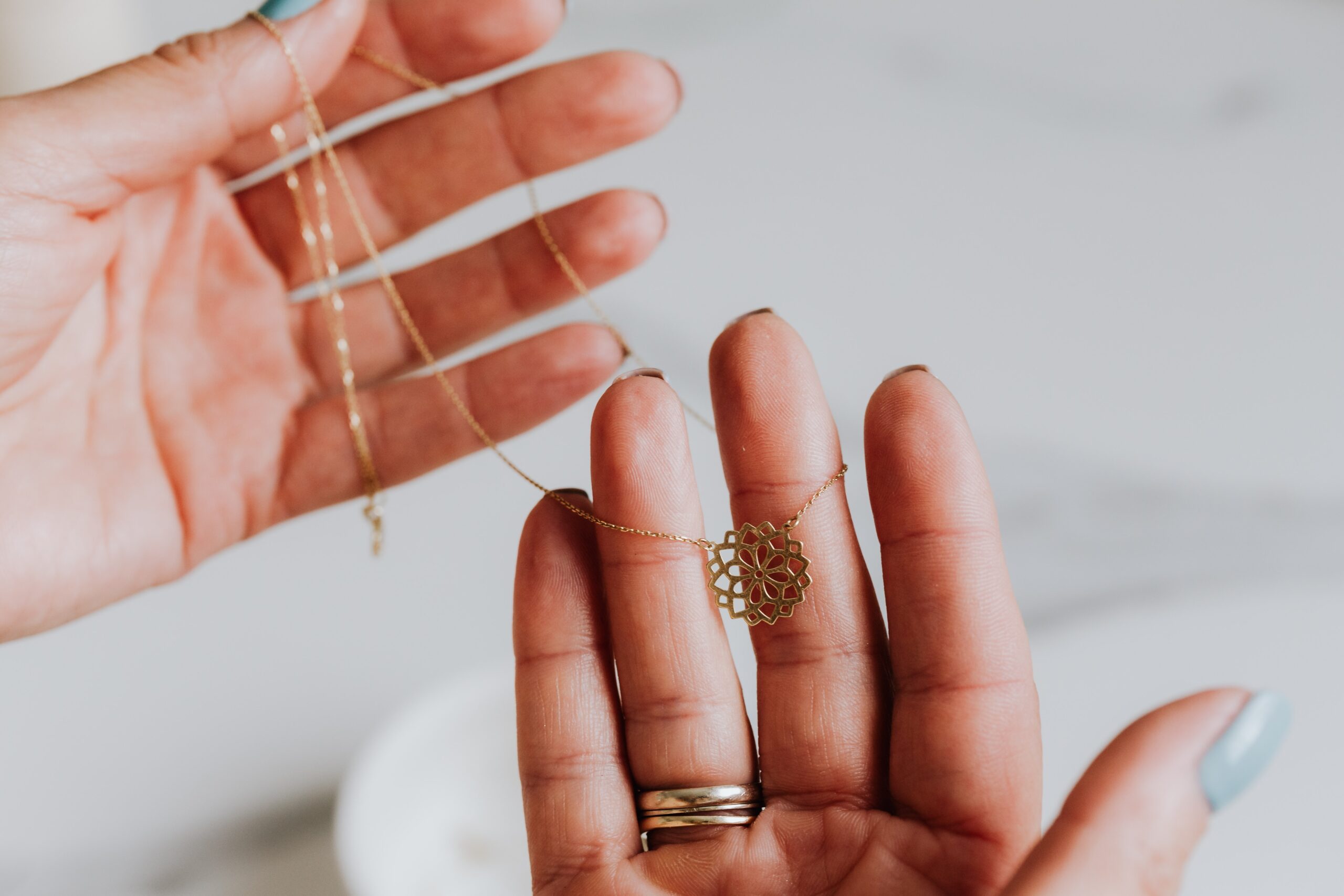Birth Month Flowers: Find Your Signature Bloom
It’s said that each month of the year has its symbolizing flower. Unbeknownst to many, these special blooms also represent our birth months! These unique specimens are known as ‘birth flowers’ and carry with them individual traits and characteristics — making no two alike. Whether you’re partial to a delicate orchid, opulent rose, or calming lavender bloom, it can be used as an insight into your personality and life story. Read this blog post to discover what makes your birth flower distinctively yours!
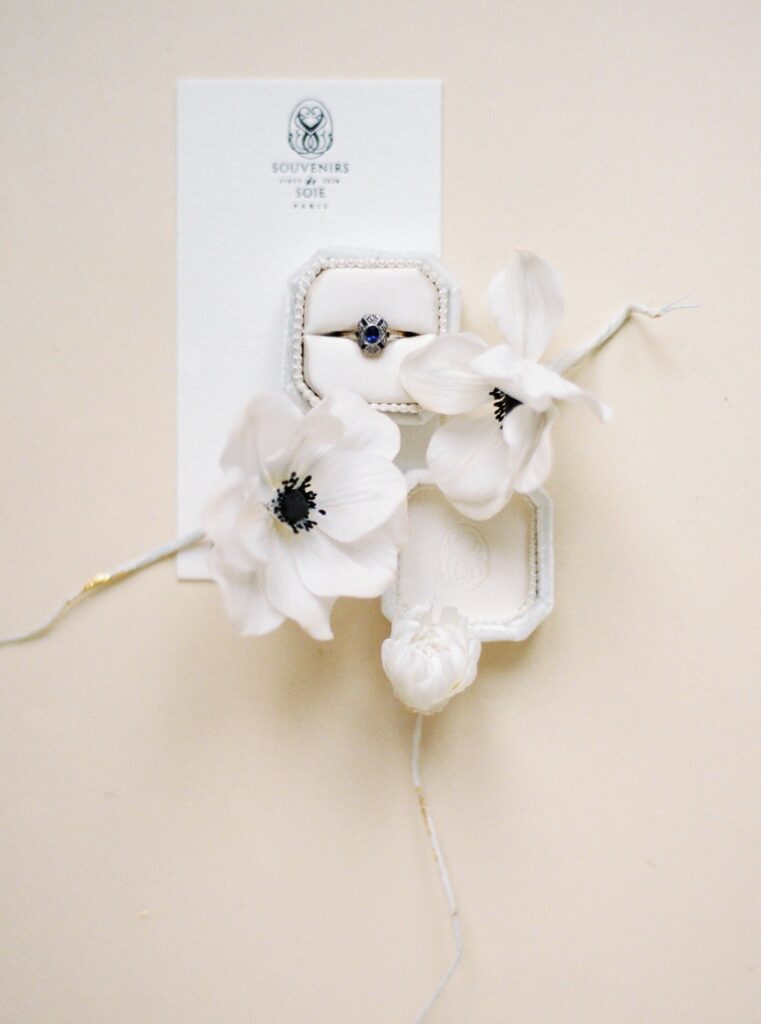
What Is My Birth Flower?
If you’ve ever wondered what your birth flower is, you’re in luck! Your birth flower is determined by the month you were born, and each has its unique meaning. For example, those born in January have the carnation as their birth flower, symbolizing love, fascination, and admiration. Those born in May have the Lily of the Valley as their birth flower, symbolizing sweetness, humility, and purity. Knowing your birth flower can not only be fun trivia, but it can also provide insight into your personality and characteristics. So take a moment to discover your birth flower and its beautiful meaning.
January Birth Flowers: Snowdrop & Carnation
January is a month of beginnings, new chapters, and fresh starts. It is also a month of wonder as two beautiful flowers grace us with their presence: snowdrops and carnations. Small and delicate snowdrops symbolize hope and purity, as they are often the first flowers to bloom in the winter. On the other hand, carnations come in various colors, including red, pink, and white, and have a fragile beauty that mimics snowflakes. They are often associated with love, fascination, and distinction. These precious blooms add a splash of color to the winter scenery and give us hope that beauty can blossom even in the most frigid temperatures.
What Do Snowdrops Symbolize?
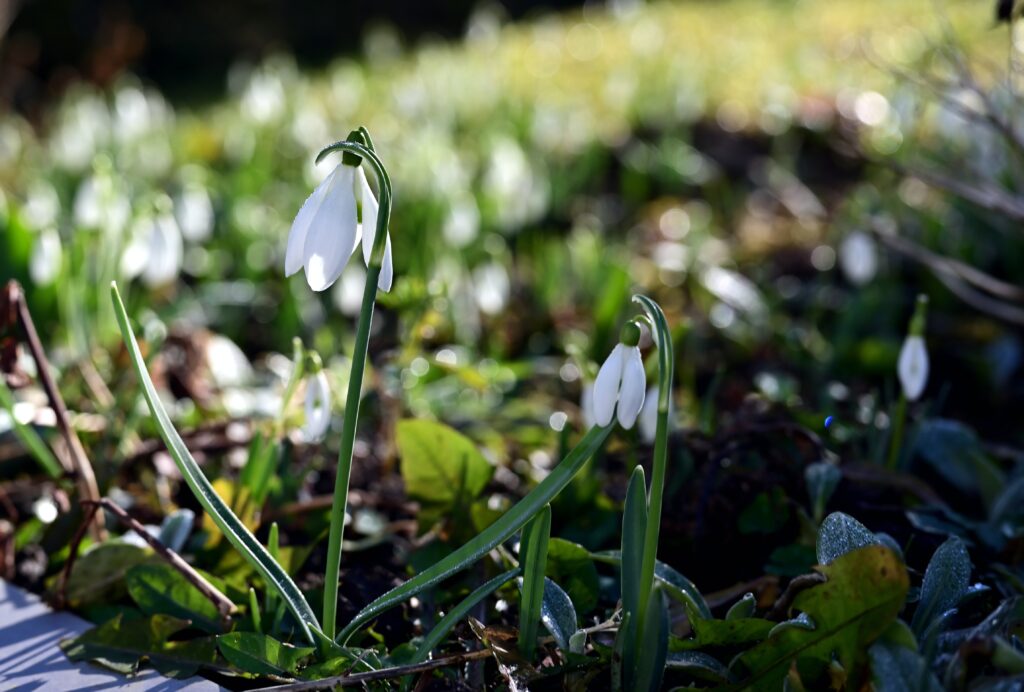
Snowdrops are beautiful flowers with drooping white blooms that can be seen peeking out of the snow but also hold a symbolic meaning. These delicate flowers symbolize hope, purity, and renewal, which makes them a perfect sign of new beginnings. Snowdrops appear just as winter is waning and spring is about to set in, representing the passing of the cold, harsh seasons and the promise of warmth and growth. People gift snowdrops to loved ones to express these hopeful emotions and even plant them in their gardens to enjoy the beauty and the promise of renewal every year. It’s no wonder this flower is so beloved and cherished.
What Do Carnations Symbolize?
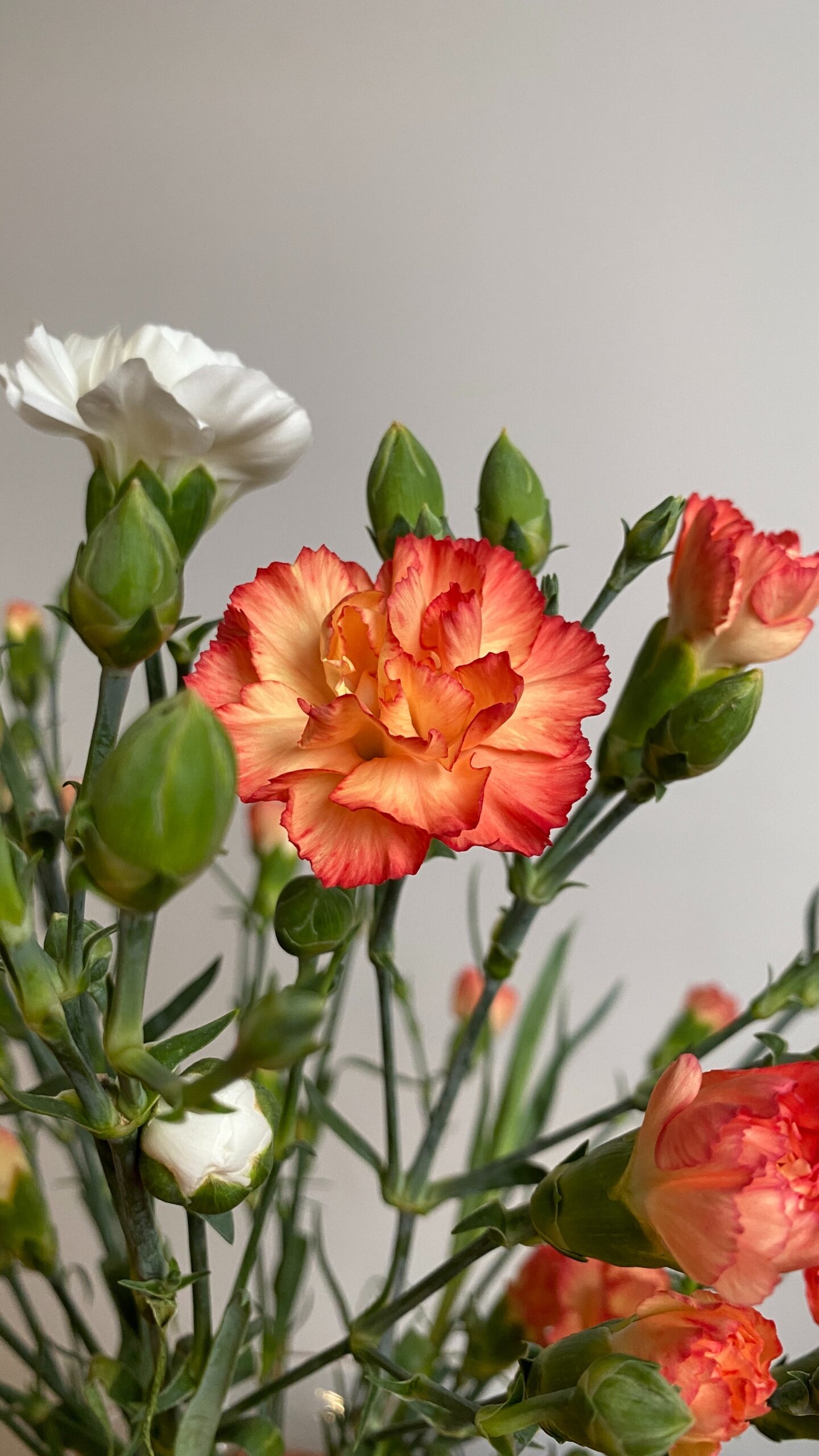
With their delicate petals and soft fragrances, carnations are often used to convey deep emotions like love, admiration, and gratitude. In the language of flowers, each carnation color carries a distinct meaning. For instance, the pink carnation symbolizes maternal love, while the red carnation expresses romantic love and devotion. The white carnation is commonly associated with purity and innocence, and the yellow carnation represents joy and happiness. These beautiful blooms have been used in various cultures throughout history to communicate heartfelt sentiments and convey meaningful messages. So, whether you’re looking to express your love, gratitude, or admiration, look no further than the classic carnation.
February Birth Flower: Iris
The iris is a unique and stunning flower widely recognized for its remarkable beauty. As the birth flower for February, the iris is often given as a gift to those born during this month. Its blooms come in a wide range of colors, including purple, blue, orange, and yellow, and their distinct, sword-shaped petals characterize them. Not only is the iris a symbol of love and admiration but it is also known for its medicinal properties and has been used for centuries to treat various ailments. Whether you’re looking to brighten your home or surprise a loved one with a thoughtful gift, the iris is a surefire way to make a lasting impression.
What Do Irises Symbolize?
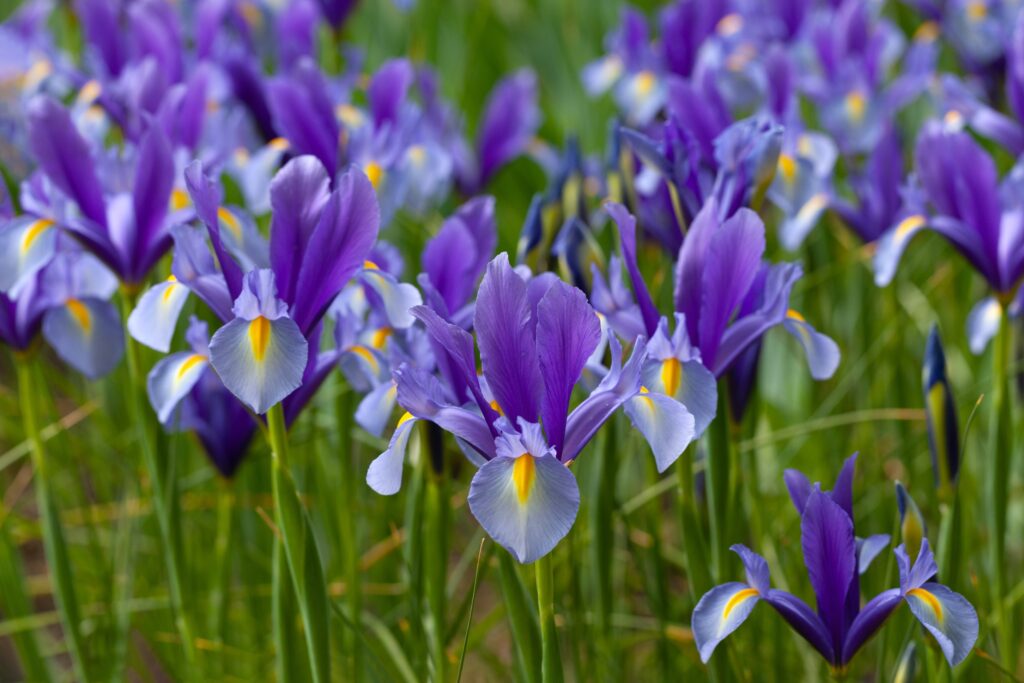
Irises are more than just beautiful flowers. They hold a deep symbolic meaning that dates back centuries. In Greek mythology, the goddess Iris carried messages from the gods to the mortals, which is fitting given that irises symbolize communication and messages. They also represent faith, hope, and wisdom, making them a popular choice for bouquets given to loved ones in times of celebration or difficulty. In addition, the color of the iris is said to hold significance, with purple symbolizing royalty and wisdom, while yellow represents passion and blue represents faith. With such a rich history and layered significance, it’s no wonder why irises remain a beloved symbol across cultures and periods.
March Birth Flowers: Daffodil & Cherry Blossom
As the winter season ends and spring begins to bloom, March babies are gifted with two beautiful birth flowers- the daffodil and the cherry blossom. The daffodil’s bright yellow petals with an orange trumpet-shaped center symbolize rebirth and new beginnings. The flower is said to bring good luck and represents hope for the future. Meanwhile, the delicate pink blossoms of the cherry blossom tree signify the fleeting nature of life and beauty. In Japanese culture, the flower is a symbol of renewal and represents the arrival of spring. These two iconic flowers brighten up gardens and landscapes and make the perfect gift for those born in March.
What Do Daffodils Symbolize?
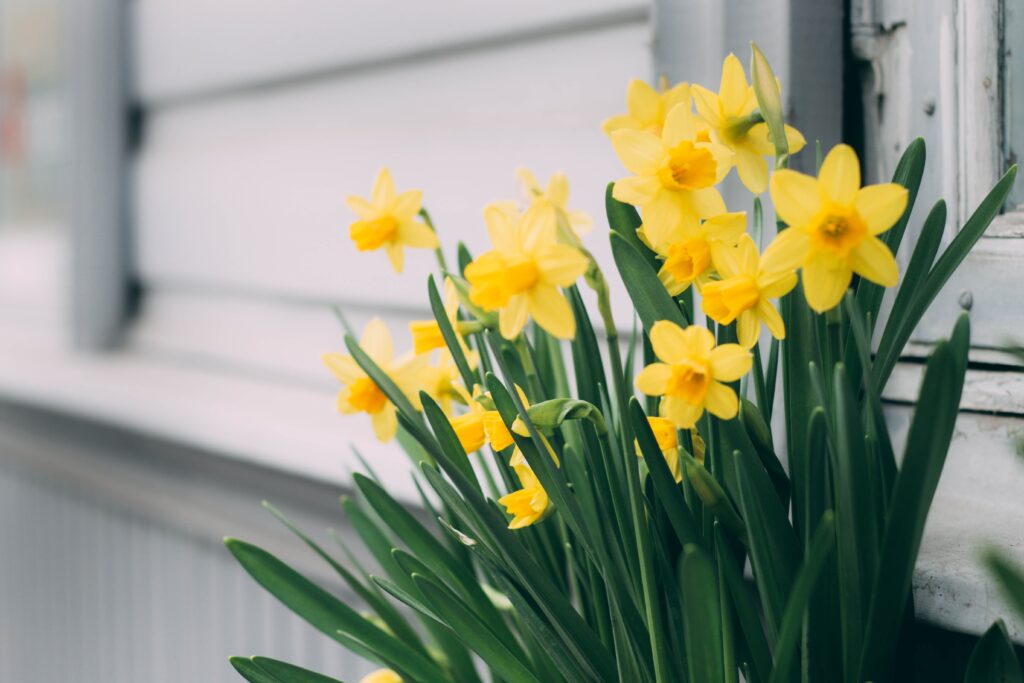
Daffodils are among the most beloved flowers in the world, enjoyed for their delicate beauty and cheerful yellow color. However, these flowers are more than just a pretty face – they also carry a rich symbolic meaning. Daffodils are often associated with new beginnings and the arrival of spring, as they are some of the first flowers to bloom after the long, cold winter months. They are a symbol of hope, of renewal, and of the promise of brighter days ahead. In some cultures, daffodils are also said to represent good luck and prosperity, making them a popular choice for bouquets and gifts. Whether you’re giving or receiving daffodils, you can be sure that these lovely flowers are a powerful symbol of positivity and joy.
What Do Cherry Blossoms Symbolize?
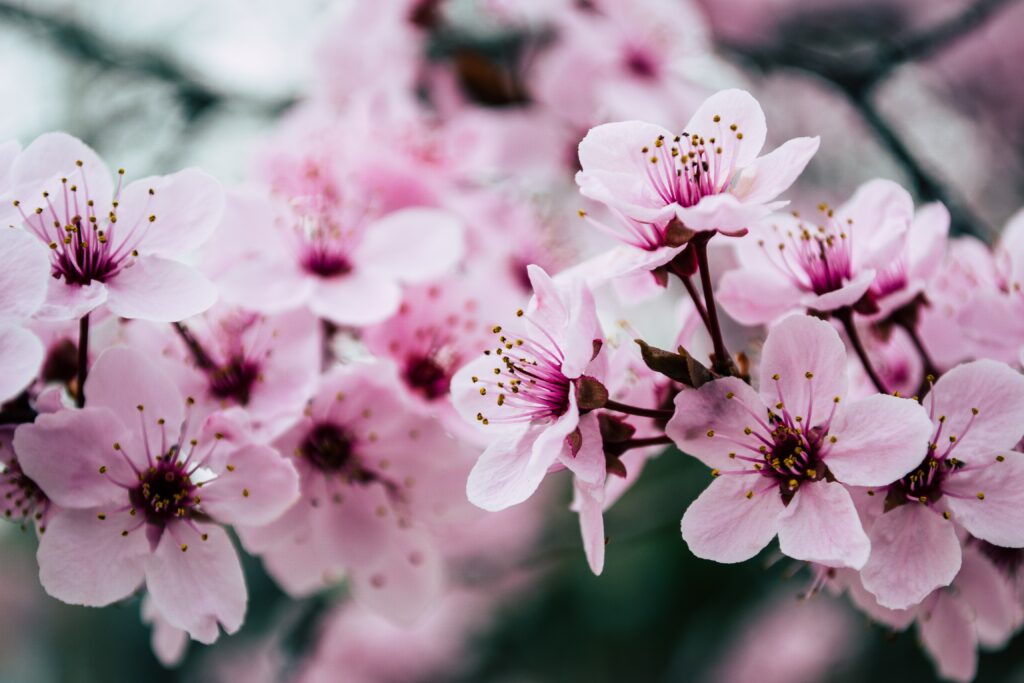
Cherry blossoms are more than just a beautiful sight; they also have a deep cultural significance. In Japanese culture, they symbolize the fleeting nature of life, representing the idea that life is precious and should be lived to the fullest. The delicate petals blooming briefly before falling to the ground remind us to appreciate the present moment and not take anything for granted. However, cherry blossoms can also symbolize new beginnings and renewal, as they bloom at the start of spring, making them a popular motif in celebrations such as weddings and graduations. Regardless of their interpretation, one thing is certain – cherry blossoms are a true reminder to stop and appreciate the beauty around us.
April Birth Flower: Daisy
As April approaches, the delightful daisy takes its rightful place as the birth flower for the month. The daisy symbolizes innocence, purity, and new beginnings with its sunny yellow center and delicate white petals. Whether growing spontaneously in a grassy field or carefully cultivated in a garden bed, the daisy never fails to bring a smile to anyone who spots its simple yet charming appearance. This unpretentious flower may be small, but its impact is undeniably powerful – much like the lucky individuals who call it their birth flower.
What Do Daisies Symbolize?
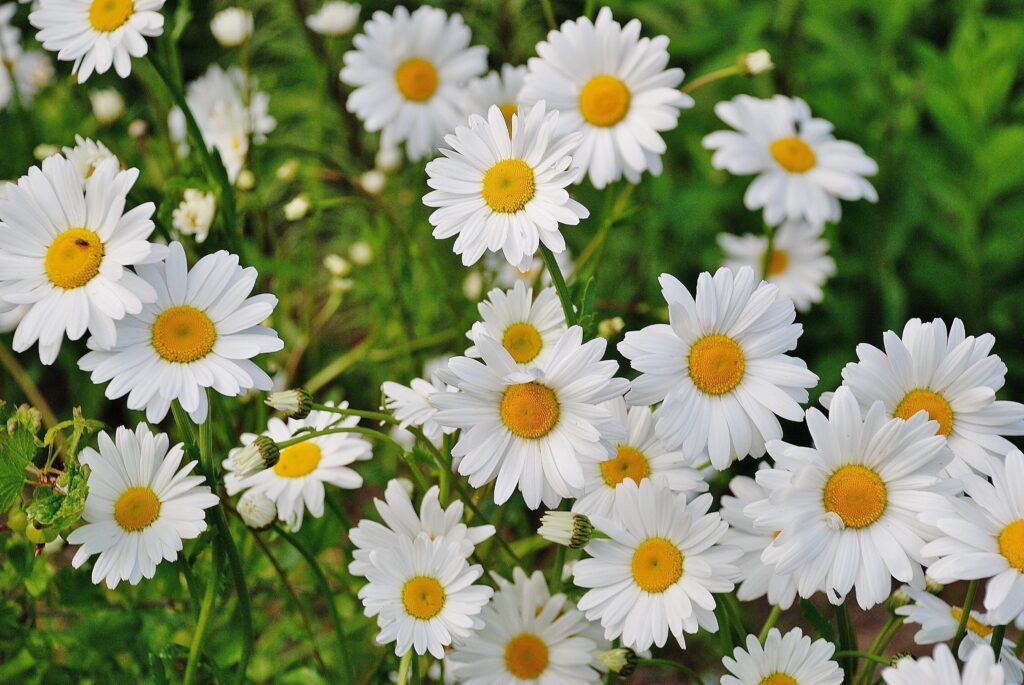
Daisies are charming and delicate flowers that symbolize purity, innocence, and youthfulness. They are often associated with loyalty, love, and being the messenger of emotions. Daisies can have different meanings in different cultures. For example, in Victorian times, offering daisies meant beginning a new friendship. In Norse mythology, the goddess Freya was believed to have worn a crown of daisies, symbolizing her love and affection for life. In contemporary society, daisies still carry a positive and uplifting message, making them an excellent gift for someone who needs a smile or a pick-me-up. Overall, daisies are cheerful and lovely flowers that reflect the joy of being alive.
May Birth Flower: Lily
May is the blooming month, and the lily is the perfect symbol of this season. With its distinct and delicate petals, the lily is a beloved flower for many. It is said that the lily stands for purity, virtue, and devotion, making it a popular choice for weddings and other special occasions. Interestingly, the lily has been a part of human culture for thousands of years. Ancient Egyptians used lilies for medicinal purposes, while the Greeks considered them a symbol of high social status. Today, the lily continues to be admired and cherished, reminding us of the beauty and grace of nature.
What Do Lilies Symbolize?
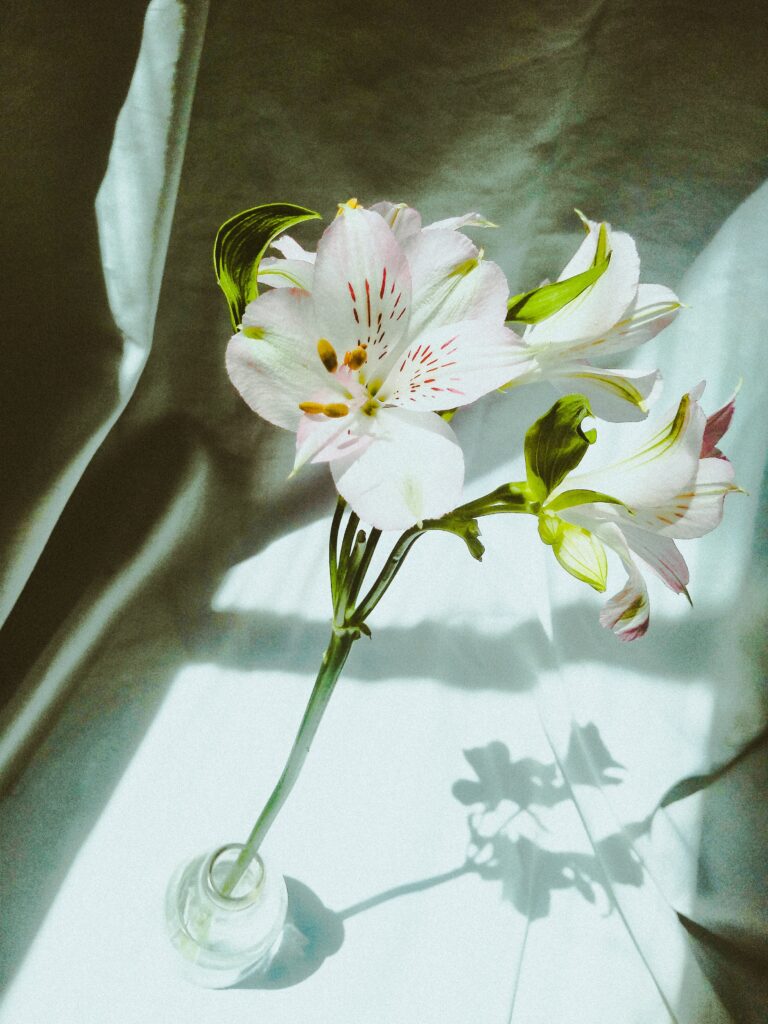
Lilies are not just beautiful flowers, but they also carry a significant meaning. These flowers are symbols of love, purity, and innocence. The whiteness of its petals symbolizes purity, while the shape of its petals resembles a trumpet, representing a call to worship. Lilies are also associated with the Virgin Mary, often depicted with these beautiful flowers. They are often used in weddings and other special occasions to represent new beginnings and hope for the future. Lilies come in different colors, each with a unique meaning, but they all share a common trait of beauty and elegance that has captured people’s hearts for generations.
June Birth Flower: Rose
From Shakespeare’s famous line “A rose by any other name would smell as sweet” to classic love songs like “The Rose” by Bette Midler, there is no denying that roses hold a special place in our hearts. For those born in June, the rose is their birth flower. Symbolizing love, honor, and devotion, the rose has been used throughout history to convey deep emotions and sentiments. With over 100 species and countless colors, a rose suits every personality and occasion. Whether a single red rose for your sweetheart or a bouquet of colorful roses to brighten someone’s day, this bloom is a timeless symbol of love and beauty.
What Do Roses Symbolize?
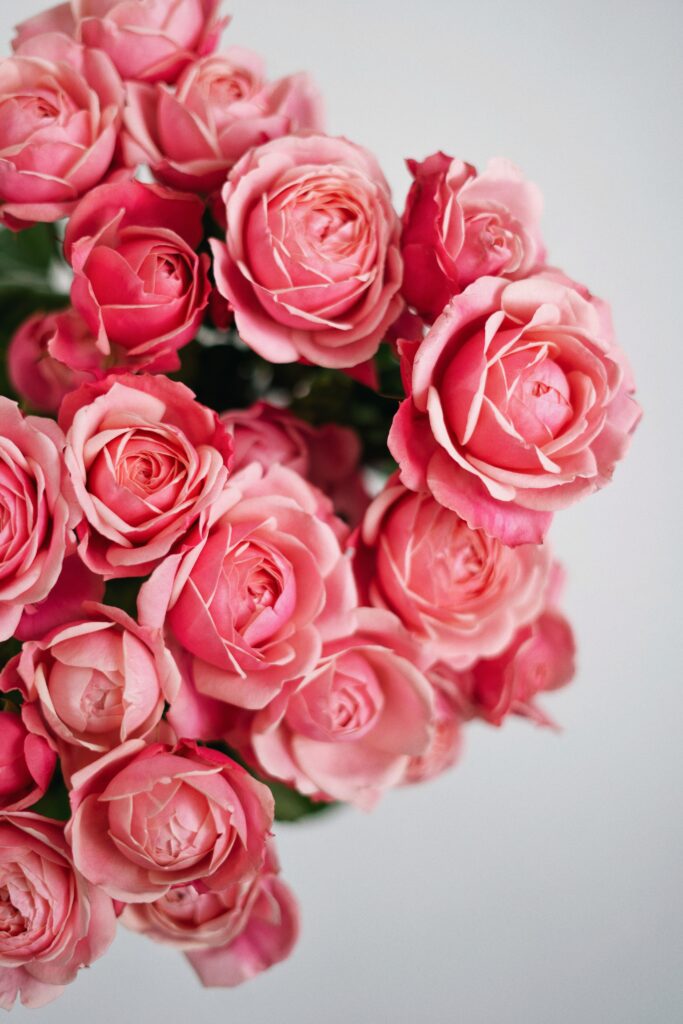
Roses have been used as a symbol of love and beauty for centuries. These flowers are aesthetically pleasing, but their symbolism can also carry a much deeper meaning. In many cultures, the color of a rose is significant as it symbolizes different emotions or values. For example, a red rose represents love and passion, while a white rose symbolizes purity and innocence. Apart from color, the number of roses can also convey a message, such as a single rose representing love at first sight. Similarly, a bouquet of twelve roses is often associated with fidelity and devotion. Overall, roses are versatile and convey a powerful love and emotional message.
July Birth Flower: Lotus
The lotus symbolizes purity, enlightenment, and rebirth in many cultures, making it the perfect birth flower for those born in July. This aquatic perennial is known for its unique shape and delicate petals that range from pink and white to yellow and blue. The lotus flower grows in muddy waters, yet it emerges unblemished and untouched by its surroundings, representing the ability to rise above obstacles and grow stronger through adversity. Its beauty and symbolism have been admired for centuries and inspire people worldwide.
What Do Lotuses Symbolize?
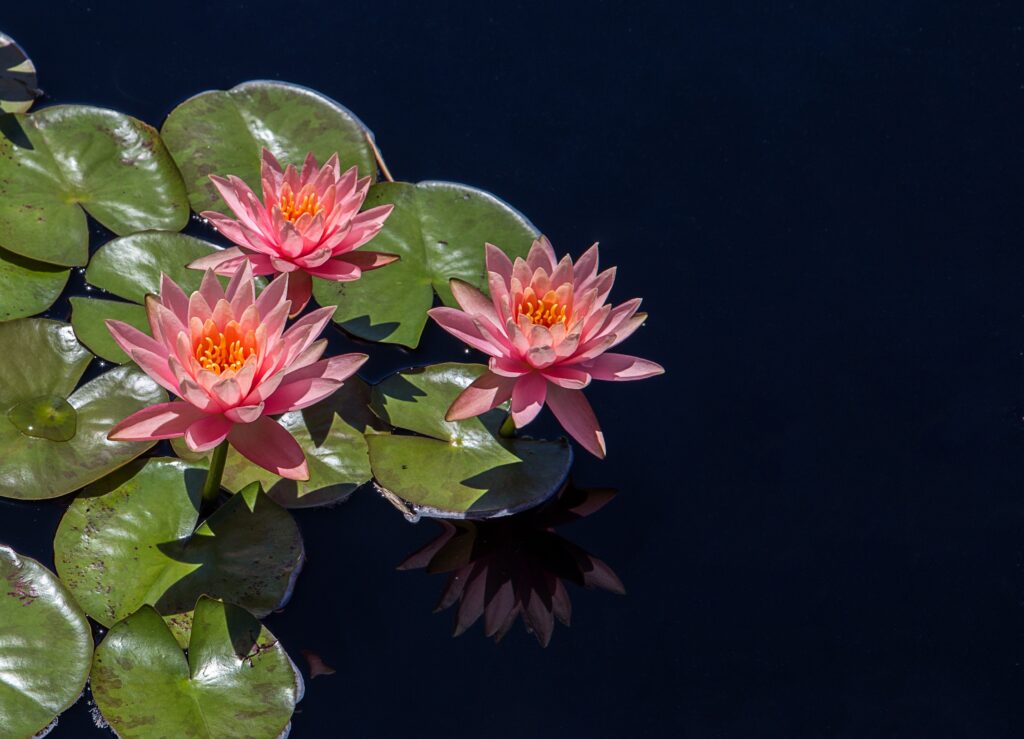
Lotuses are more than just pretty flowers. Symbolically, they hold great meaning in several cultures and religions. In ancient Egypt, lotuses represented the sun, creation, and rebirth. In Buddhism, the flower symbolizes purity, spiritual awakening, and enlightenment. Lotuses are often depicted in Hinduism and Christianity, representing divinity and resurrection, respectively. The plant’s ability to emerge from muddy waters and produce such beautiful blooms is taken as a metaphor for overcoming obstacles and achieving enlightenment. Indeed, the lotus holds a powerful symbolic significance that has resonated with millions throughout history.
August Birth Flower: Poppy
August is a month that is filled with warmth, sunshine, and blooming flowers. Among all the stunning blossoms this month has to offer, the poppy stands out as the birth flower of August. These elegant yet vibrant flowers symbolize both remembrance and relaxation. With their delicate petals in red, pink, orange, and white shades, poppies add grace and beauty to any garden or floral arrangement. Though poppies are known for their striking aesthetic appeal, they also have special significance. In many cultures, the poppy represents the memory of those who have sacrificed their lives for others. So not only are poppies beautiful, but they also hold a deep meaning that is important to remember. If you were born in August, embrace the enchanting poppy as your birth flower and celebrate its beauty and significance to this month.
What Do Poppies Symbolize?
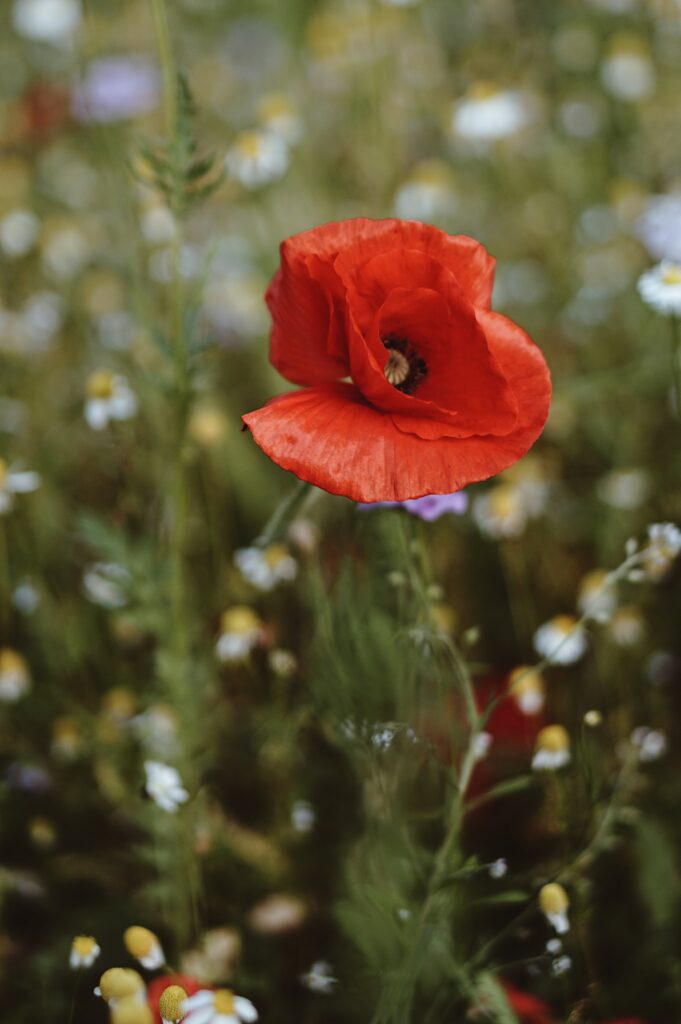
Poppies are beautiful flowers, but they have a deeper cultural significance. These red blooms are nationally recognized as a symbol of remembrance for military personnel who have died in wars. This symbolism began with the poem “In Flanders Fields” by John McCrae, a Canadian physician, soldier, and poet. Poppies grow well in disturbed soil, which was all too common in the battlefields of World War I. The poem describes the poppies as a symbol of the bloodshed of soldiers, and their vibrant red color adds to the flower’s somber yet significant impact. Today, poppies are worn on special occasions such as Remembrance Day or Memorial Day to honor those who have fallen while serving their country.
September Birth Flowers: Aster & Peony
September is a month that marks the end of summer and the beginning of autumn, when the leaves start changing colors and fall off the trees, and nature takes on a whole new form. September is also associated with two birth flowers: the aster and peony. Astors, with their vibrant colors, symbolize love, elegance, and wisdom. In ancient times, asters were believed to have healing powers, particularly in treating eye-related problems. Peonies, on the other hand, are often seen as symbols of good fortune, happiness, and resilience. In China, peonies are considered the “king of flowers” in many traditional paintings and artworks. Overall, September’s birth flowers perfectly embody the changing seasons, blending beauty and significance uniquely.
What Do Asters Symbolize?
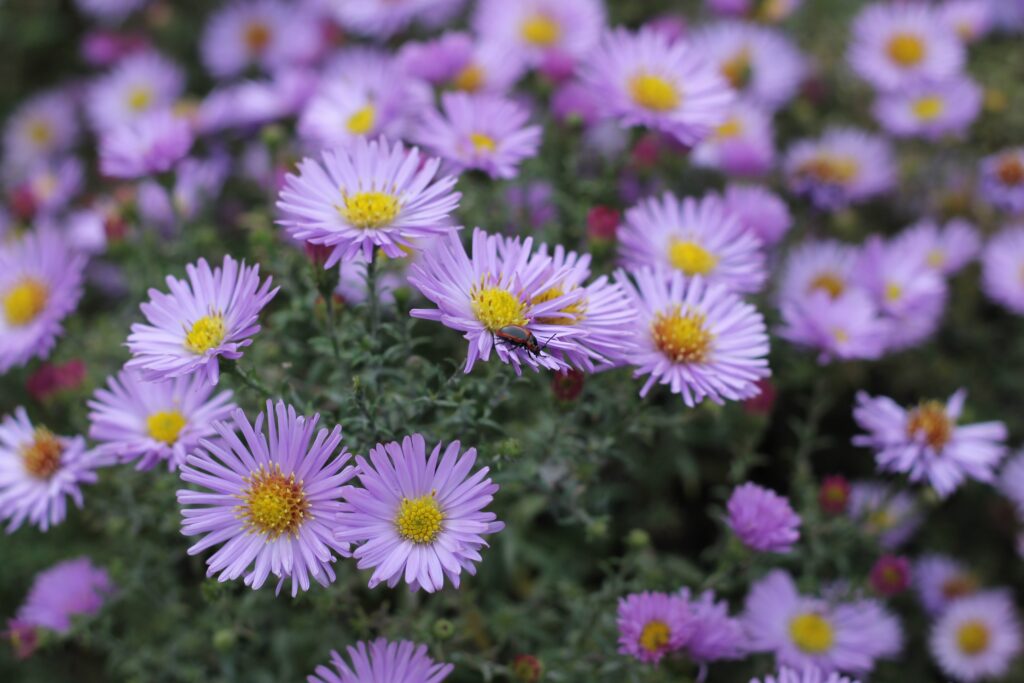
Asters are among the most popular flowers in bouquets, gardens, and floral arrangements. These delicate blooms have long been associated with various meanings, from friendship and love to patience and elegance. In general, asters symbolize diversity, knowledge, and wisdom. They are also often used to symbolize hope, particularly when people face difficult or uncertain times. Whether you’re looking to celebrate a special occasion or brighten someone’s day, asters are a beautiful and meaningful choice.
What Do Peonies Symbolize?
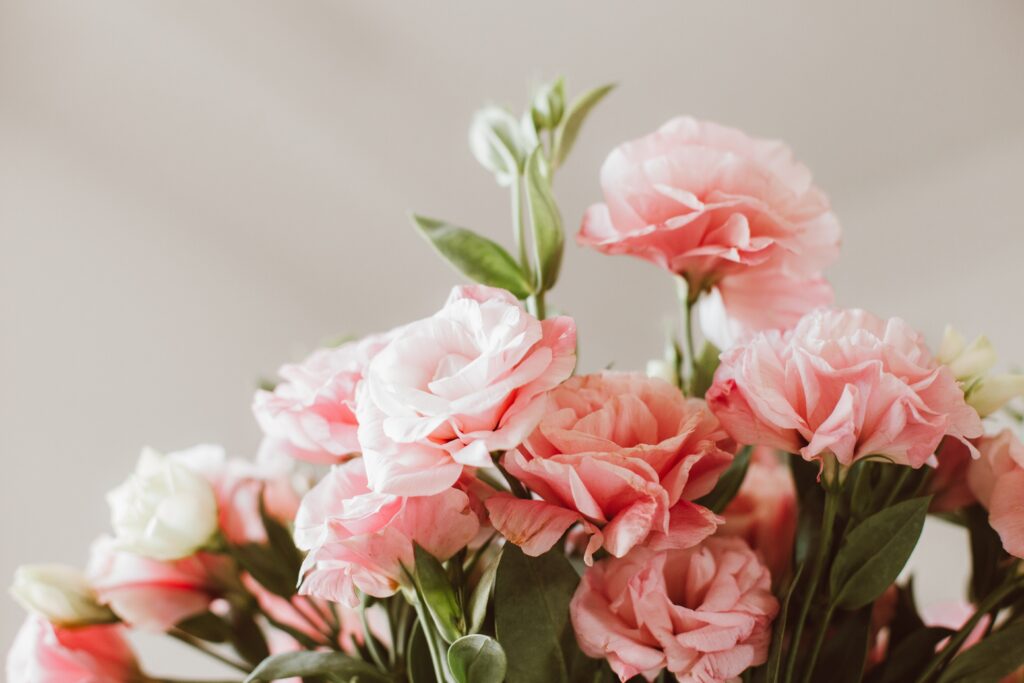
Peonies are more than just beautiful flowers – they hold significant symbolism. Peonies symbolize prosperity, good fortune, and a happy marriage in many cultures. Their delicate yet bold petals are often used to adorn weddings and other celebratory events. Peonies can also represent honor and respect. In China, they are known as the “King of Flowers” and are highly regarded for their beauty and fragrance. The sweetness of their aroma can inspire calmness and healing, making them a popular choice in aromatherapy. Whether you are gifting peonies to a loved one or simply admiring them in a garden, these flowers are sure to bring joy and positivity wherever they go.
October Birth Flower: Cosmos
As the leaves change color and the air turns crisp, October brings a new birth flower to the forefront: cosmos. With its delicate petals and vibrant colors, the cosmos is a beautiful reminder of the changing seasons. Symbolizing love, harmony, and order, the cosmos flower has been cherished by cultures around the world. Interestingly, the name “cosmos” comes from the Greek word for “order,” which is fitting considering the plant’s tidy growing habits. Whether you’re looking to celebrate a loved one’s October birthday or enjoy the beauty of nature’s changing landscape, the cosmos flower will surely delight and inspire.
What Do Cosmos Symbolize?
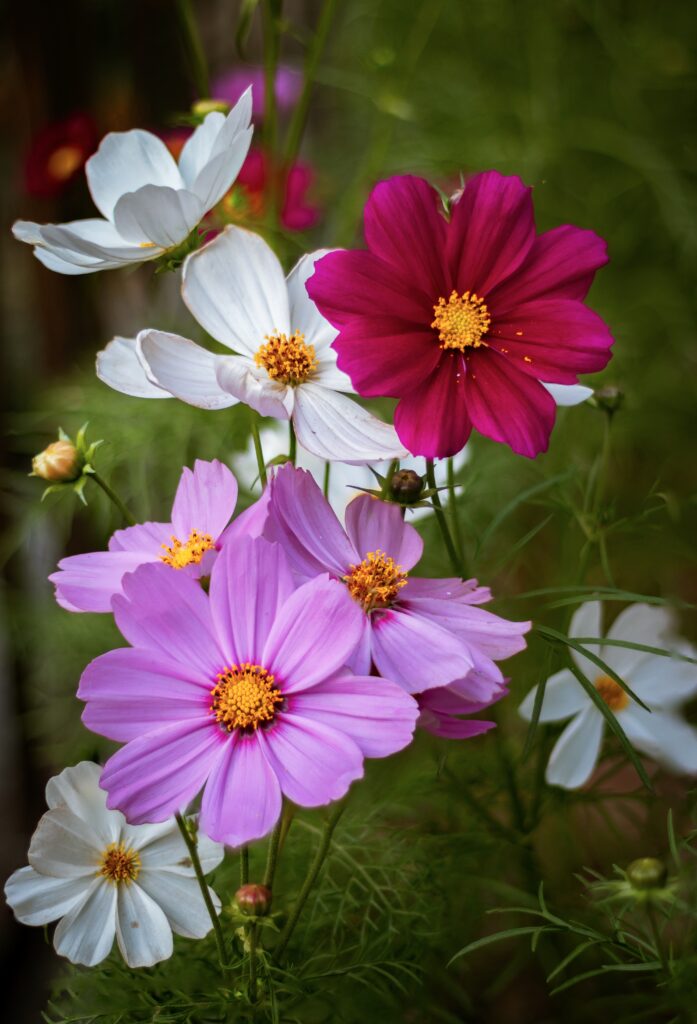
Cosmos have been a symbol of wonder and intrigue for centuries. Representing the vast expanse of the universe, the cosmos evokes a sense of mystery and awe that captivates the human imagination. From ancient cultures to modern times, the cosmos has been associated with ideas of creation, spirituality, and the infinite possibilities of existence. Whether gazing up at the stars or contemplating our place in the cosmos, this symbol continues to fascinate and inspire us to explore the mysteries of the universe.
November Birth Flower: Chrysanthemum
The November birth flower is the stunning chrysanthemum. This flower boasts a rich history that dates back thousands of years and has become one of the most beloved flowers known to man. The name “chrysanthemum” translates to “golden flower” in Greek, which is particularly fitting considering these flowers’ bright and vibrant colors. Chrysanthemums are often given to those born in November as a symbol of friendship, warmth, and love. Their beauty is undeniable, and they make a wonderful addition to any bouquet or garden. It’s no wonder the chrysanthemum has become such a popular flower worldwide!
What Do Chrysanthemums Symbolize?
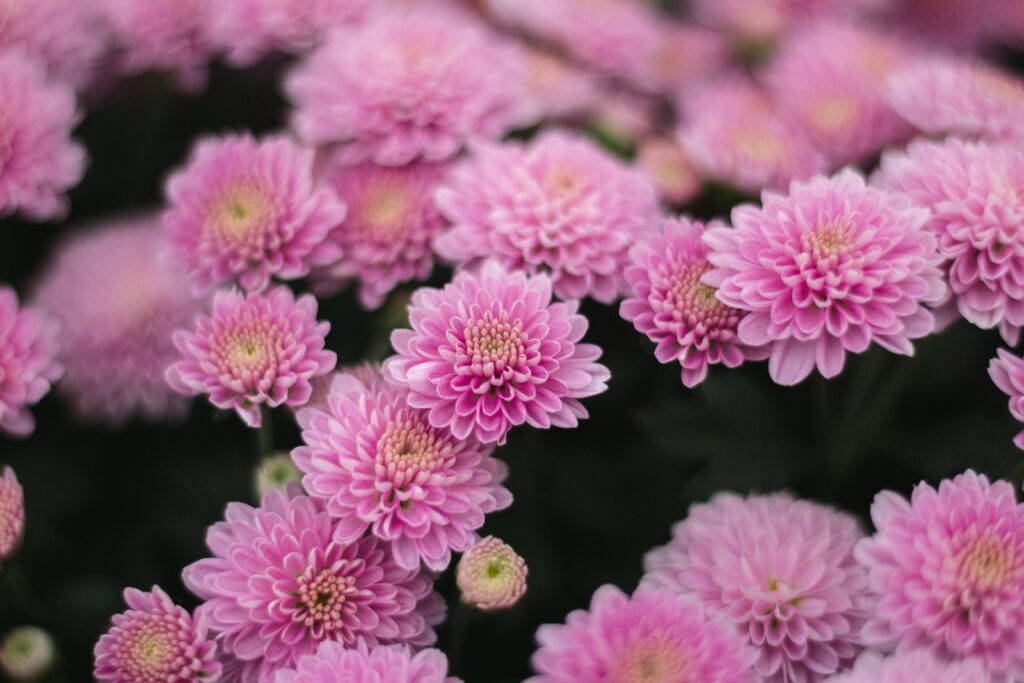
Chrysanthemums, also known as mums, have been the centerpiece of many gardens for centuries. Not only are they beautiful and come in various colors, but chrysanthemums also hold a significant meaning. In many cultures, they represent loyalty, love, and friendship. Additionally, chrysanthemums are often seen as a symbol of longevity and rejuvenation. In Japan, they are used to celebrate happiness and joy during the festival of happiness, also known as the “Festival of Happiness.” Chrysanthemums are more than just pretty flowers – they hold a special significance and meaning passed down through generations.
December Birth Flowers: Hellebore & Camellia
Celebrate December birthdays with the stunning and unique Hellebore and Camellia flowers. Hellebores, also known as Christmas roses, bloom during winter and symbolize hope and perseverance. The Camellia, on the other hand, is a symbol of love and affection. Known for its striking beauty and delicate petals, the Camellia is often used in weddings and other romantic occasions. Both flowers come in various colors, making them a versatile gift option. Whether surprising someone special on their birthday or adding a touch of elegance to your home, Hellebore, and Camellia flowers are a perfect choice.
What Do Hellebores Symbolize?
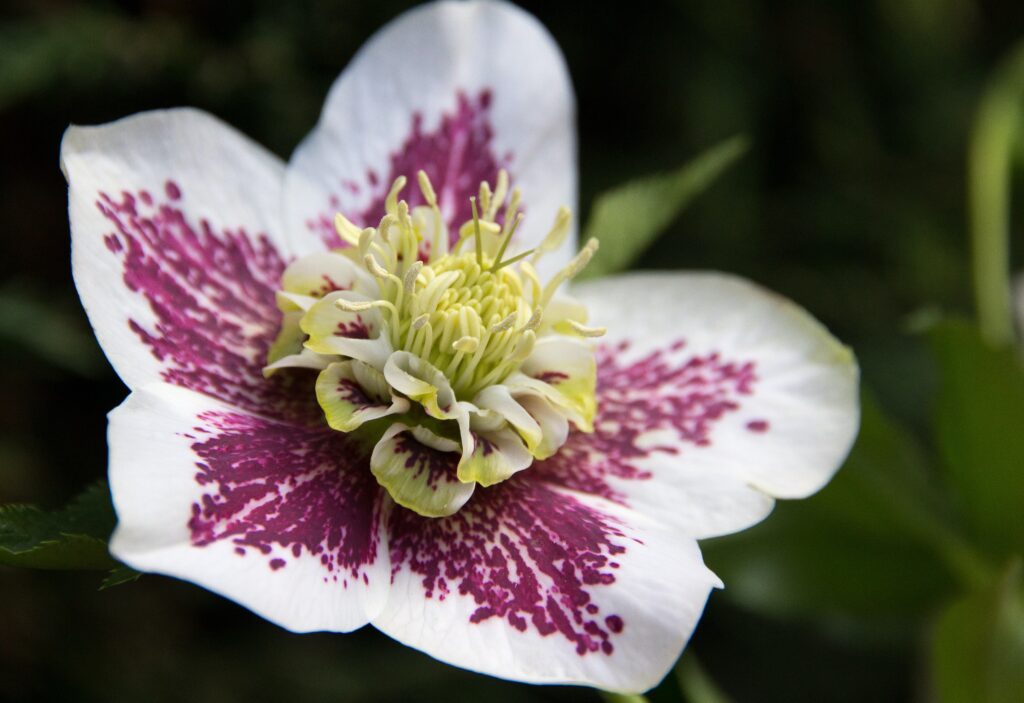
Often called the Christmas Rose, the Hellebore is a perennial plant native to Europe and parts of Asia. Although it appears delicate with its exquisite, bell-shaped flowers, it blooms in winter, making it a resilient symbol of hope and perseverance. The Hellebore symbolizes many things, including protection, rebirth, and healing. In ancient times, it was believed that these flowers had the power to ward off evil spirits, and some cultures still use them for medicinal purposes today. With its storied past and breathtaking beauty, the Hellebore is a meaningful and mysterious reminder of the beauty and resilience of nature.
What Do Camellias Symbolize?
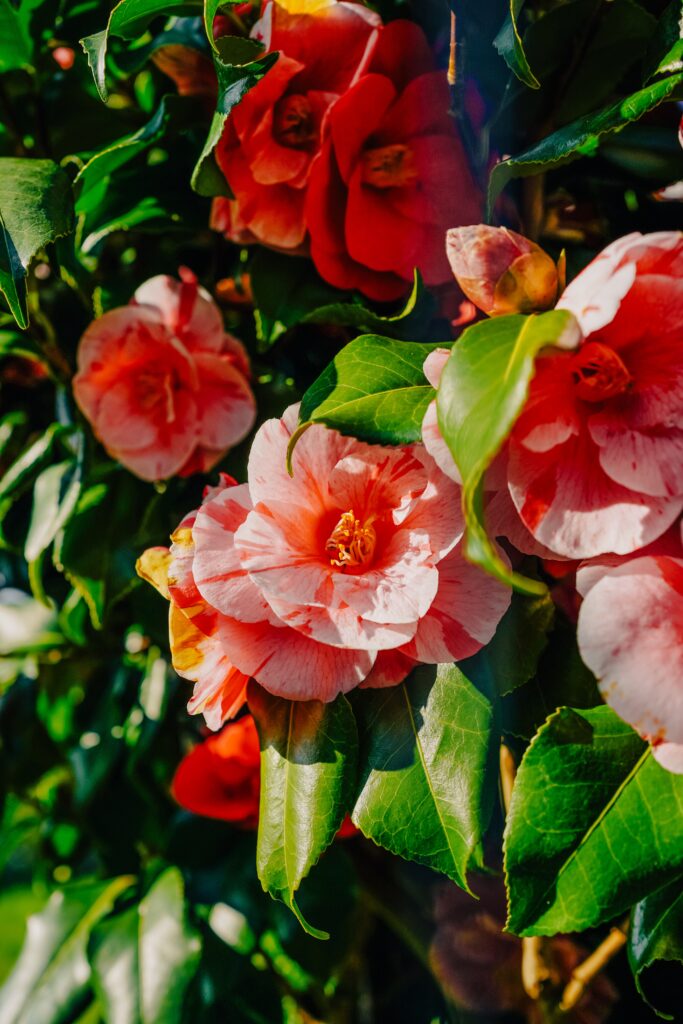
Camellias are a flower with a long history of symbolism and meaning. In the language of flowers, camellias are most often associated with love and affection, making them a popular choice for Valentine’s Day and other romantic occasions. However, the symbolic meaning of camellias goes beyond just matters of the heart. In some cultures, camellias are believed to represent longevity and long life, while in others, they are seen as a symbol of spring and new beginnings. Whether you want to express your love or celebrate a fresh start, the Camellia offers a beautiful way to convey your message with elegance and grace.
In Remembrance: Forget-Me-Not
The forget-me-not flower has long been a symbol of remembrance and everlasting love. These delicate blue blooms may be small, but they hold great power in their symbolism. When given to someone, they serve as a reminder never to forget the memories and love shared between two individuals. Whether given as a gift or decoration, the forget-me-not is a beautiful and meaningful way to honor those who have passed on. Let us remember our loved ones with the beauty and grace of the forget-me-not flower.
What Do Forget-Me-Nots Symbolize?
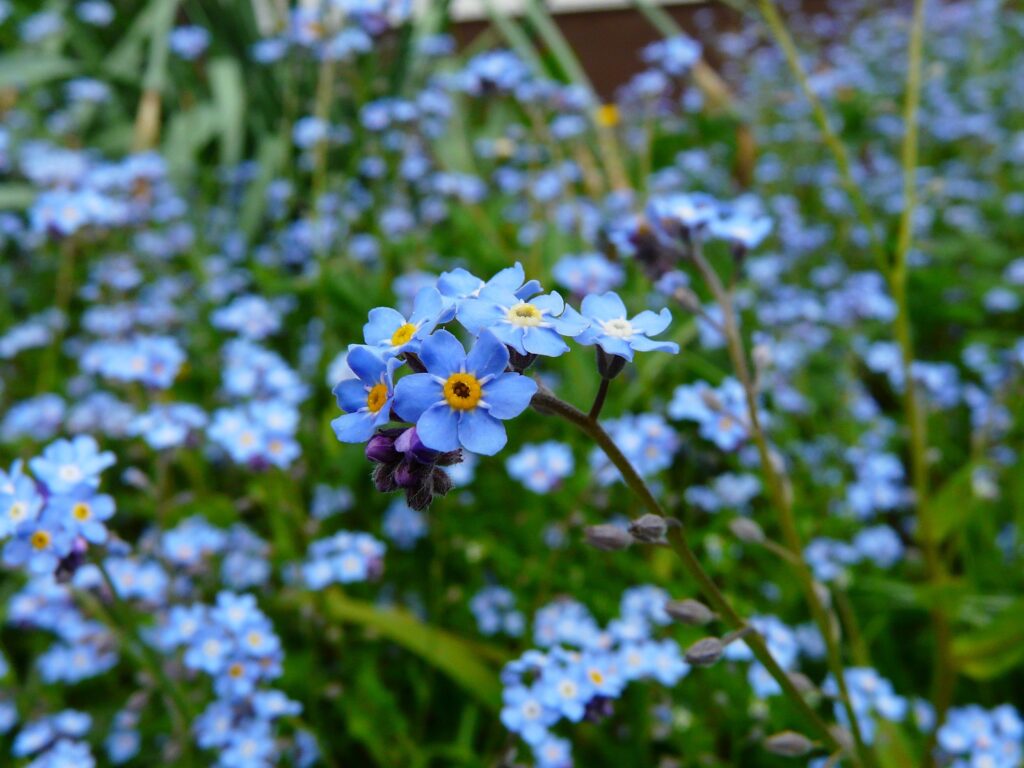
Forget-me-nots are more than just a pretty flower. These delicate blue blossoms symbolize loyalty, faithfulness, and true love. As their name suggests, forget-me-nots remind us to stay true to the ones we love and hold close to our hearts. According to legend, a knight picked these flowers for his lady when he fell into a river. As the current swept him away, he threw the flowers to his beloved, exclaiming, “Forget me not.” Since then, these beautiful blooms have become a symbol of enduring love and remembrance. Whether you give them as a gift or admire their beauty, forget-me-nots are a timeless reminder of the importance of staying loyal to those we hold dear.
Explore Birth Flower Jewelry.
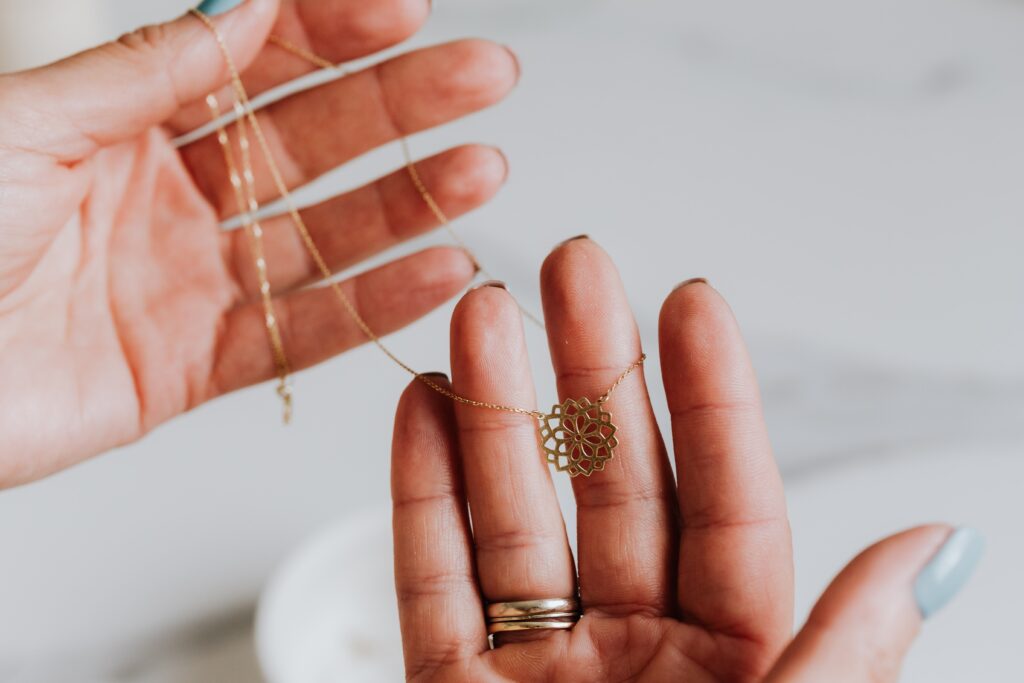
Birth flower jewelry collection is nothing short of stunning. Each piece is delicately crafted to represent the unique beauty of the corresponding birth flower. From the vibrant hues of the December Narcissus to the soft petals of the June Rose, our designers have skillfully captured the essence of each flower. Not only are the pieces visually stunning, but they also make for deeply personal gifts. Surprise your loved one with a necklace or earrings featuring their birth flower, and watch their face light up with joy. With various styles and materials, there’s a birth flower jewelry piece for everyone to cherish and love. Grab discounts with coupon codes on birth flower jewelry.
Birth flowers have been a tangible and visual representation of the months for centuries. From snowdrops to forget-me-nots, every birth flower is an integral part of our lives due to its symbolism and history—providing us with reconnection to our pasts and presents. Whether searching for the perfect bouquet or gifting someone special a bracelet adorned with their birth flower, using these signs in day-to-day life serves as both an honor and reminder of who we are, where we came from, and the people that make up our lives. Explore our classical line of jewelry featuring birth flowers & explore how you can bring significance into your daily life in the form of meaningful symbols today!

